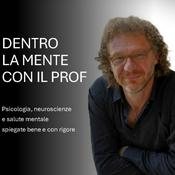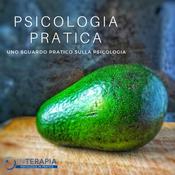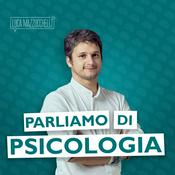1032 episodi
- We’re 18 months into the Labour government, and their changes to the NHS are beginning to be felt. In the 10 year plan that they launched last year, they announced three planned shifts for the health service.
Firstly, they pledge to move care from hospitals to the community, an increased focus on prevention rather than sickness, and shift from analogue to digital with an improved NHS app where patients can access records, seek advice and control some aspects of their care. However, accessing primary care and getting a GP appointment is still a key area of concern for patients and healthcare staff.
In a new research paper on bmj.com, a group of researchers have performed a qualitative study asking 70 patients about their experiences of accessing primary care in England. We're joined by Hugh Alderwick and Luisa Petigrew from the Health Foundation to discuss what the findings mean for the 10 year plan.
Also this week, online gambling is a growing problem. The immediacy of access, combined with advertising and push notifications, and a proliferation of new gambling companies, undermines traditional ways of managing a gambling addiction.
A new analysis argues that these new forms of online gambling requires new forms of regulation. Spencer Murch from the University of Calgery offers some ideas on how that could work.
Reading list
Experience of access to general practice in England
Policies to increase access to general practice may have unintended consequences
Online gambling requires greater government regulation - This interview is available in video form: https://www.youtube.com/watch?v=-yNO47EfuEM
@RichardJMurphy, political economist and tax campaigner, joins Kamran Abbasi, Editor in Chief of The BMJ.
In the UK an ongoing dispute between resident doctors and the Labour Government saw doctors go on strike in mid-December. With Winter pressure piling on and cost-of-living on the rise, do doctors have a credible case of pay rises? And more broadly, how can the economic situation of the NHS be improved?
00:00 Introduction
01:30 Doctor Pay Claims
04:33 Inflation Measures
07:29 Affordability Crisis
09:48 Market Forces Arguments
12:52 NHS Affordability
15:00 Youth Unemployment
19:14 Political Priorities
23:10 Neoliberal Capitalism
27:35 Mixed Economy Alternative
32:32 Prescription for NHS - The class of GLP-1 agonist drugs including Ozempic gained a wide reputation for weight loss in 2025. However, it's well established that weight regain is a common result after people stop their doses. We report on new research which aims to quantify what is happening in the here-and-now for patients who stop using these and similar drugs.
Weight regain after cessation of medication for weight management: systematic review and meta-analysis
Also, The BMJ reports on news from Gaza. The Israeli government has issued new directives to strip 37 NGOs of their licences to provide essential aid to the population. This includes Médecins Sans Frontières, the charity directly supporting many of the critically important hospitals in the territory. Gaza is experiencing an especially harsh Winter and MSF warn that this measure could leave Palestinians without lifesaving medical care.
Gaza: Israel moves to ban dozens of aid groups in "cynical and calculated" move
Gaza in winter: 29 day old baby dies of hypothermia amid dire conditions
The BMJ’s annual appeal is supporting the work of Médecins Sans Frontières (MSF). Around the world, MSF teams are providing maternity care, containing outbreaks, and performing vital surgeries. In areas overwhelmed by conflicts and natural disasters, more lives can be saved when we are in the right place at the right time.
Donate today at https://msf.org.uk/bmj-annual-appeal-2025 Could a Ministry for the Future solve the climate crisis? | Kim Stanley Robinson interview
09/01/2026 | 42 minThis episode is available in video form on YouTube: https://youtu.be/1cGrD47eZSk
American science fiction author Kim Stanley Robinson joins Kamran Abbasi to discuss climate disaster, the need for political imagination, and science fiction's vision for health.
Kim Stanley Robinson is the acclaimed author of a trilogy of novels, exploring the terraforming and settlement of Mars. His most recent novel, 'Ministry for the Future', was published in 2020.
'Ministry for the Future' sets out a vision for real solutions to our climate crisis, covering global finance, the animal kingdom, rising sea levels, energy production and much more. The book imagines a Ministry that begins its work in 2025.
Five years after publication, with 2025 past and gone, The BMJ spoke to Robinson to explore how closely the novel's vision for the future has reflected reality.
01:00 BMJ's New Climate Change Initiative
01:21 Kim Stanley Robinson's Ministry for the Future
04:02 The Role of Political Violence in Climate Action
10:50 The Concept of the Carbon Coin
12:51 The Importance of Global Collaboration
27:32 The Role of Medicine in Climate Change
32:33 Youth and Climate Activism
37:53 Hope and Despair in Climate Action
41:29 Conclusion and Future Works
Read more about The BMJ's climate coverage in the latest issue: https://www.bmj.com/content/392/8479- It’s time for 2025’s festive fun!
Practicing medicine can be a very visceral experience - and the English language can’t always adequately capture the sights, sounds, smells. So Matt Morgan, intensivist and BMJ columnist, is creating medical neologisms, and joins us to share a few.
Madhvi Joshi, a GP in London, has written about longevity science, and we hear how the “biohacking” of internet influencers like Bryan Johnson is making its way into the consultation.
Navjoyt Ladher and Tim Feeny take us though this year’s festive research, and are joined by Anupam Bapu Jena from Harvard, who has been looking at self censorship in the time of Trump, and Melanie de Lange, from the university of Bristol, who has been investigating the impact of daylight savings time.
Reading list:
A dictionary for medicine’s unnamed moments
https://www.bmj.com/content/391/bmj.r2476
Science of longevity medicine
https://www.bmj.com/content/391/bmj.r2536
Changes in diversity language in National Institutes of Health grant awards
https://www.bmj.com/content/391/bmj-2025-087222
Acute effects of daylight saving time clock changes on mental and physical health in England
https://www.bmj.com/content/391/bmj-2025-085962
Altri podcast di Salute e benessere
Podcast di tendenza in Salute e benessere
Su Medicine and Science from The BMJ
The BMJ brings you interviews with the people who are shaping medicine and science around the world.
Sito web del podcastAscolta Medicine and Science from The BMJ, Mindfulness in Voce e molti altri podcast da tutto il mondo con l’applicazione di radio.it

Scarica l'app gratuita radio.it
- Salva le radio e i podcast favoriti
- Streaming via Wi-Fi o Bluetooth
- Supporta Carplay & Android Auto
- Molte altre funzioni dell'app
Scarica l'app gratuita radio.it
- Salva le radio e i podcast favoriti
- Streaming via Wi-Fi o Bluetooth
- Supporta Carplay & Android Auto
- Molte altre funzioni dell'app


Medicine and Science from The BMJ
Scansione il codice,
scarica l'app,
ascolta.
scarica l'app,
ascolta.



































